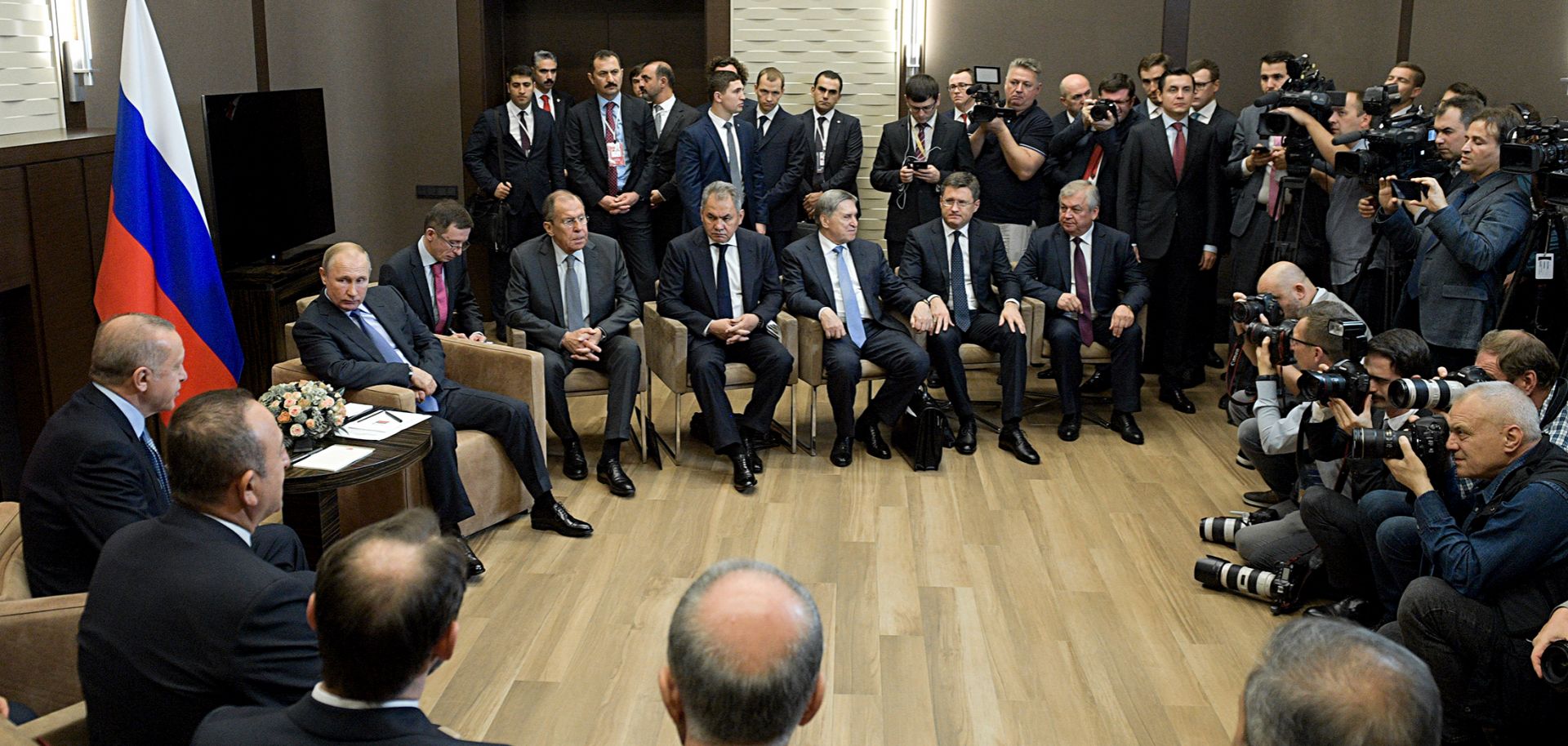COLUMNS
The Risks and Rewards of Moscow's Mission in Syria

Oct 24, 2019 | 09:00 GMT

Turkish President Recep Tayyip Erdogan (L) and Russian President Vladimir Putin (in front of flag) discuss the situation in Syria during a meeting in Sochi. As Russia's commitments in Syria grow, it might encounter more hiccups along the way.
(ALEXEI DRUZHININ/TASS via Getty Images)
Highlights
- Russia, which only sent a comparatively small force to Syria, will continue to reap significant diplomatic, commercial and military rewards from its operations there.
- Russia's continued presence in Syria, however, raises the risk that its operation could turn its operation there into a costly quagmire.
- In particular, Russia might find it more difficult to keep apart Syrian and Turkish forces as they come into greater contact in northeastern Syria.
Subscribe Now
SubscribeAlready have an account?
